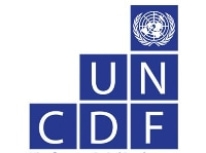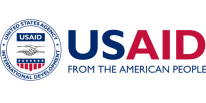How can the private sector become a powerful catalyst for deeper, more sustainable inclusion of women
in the world economy?
What has been learned by the pioneering companies taking on this challenge?
As development practitioners, we understand the economic empowerment of women cannot be achieved without the engagement of the private sector. Business, as the institution that plays a central role in the everyday operations of the world economy, is an essential participant. If the expected growth benefits are to occur and if the development programs that support women’s successful engagement are to be sustained, then it is necessary to integrate the task of female inclusion into the actual systems of business. A long-term approach is required to foster systemic change.
The Global Business Coalition for Women’s Economic Empowerment (GBC4WEE) was established with this basic principle. Representing decades of experience improving the yields of female farmers, incorporating women owned businesses into global supply chains, and increasing access to digital financial services, the companies that form the GBC4WEE are dedicated to sharing their collective knowledge with the international community.
This plenary described the lessons learned by a group of major multinationals who had joined the effort to economically empower women through partnerships, research and innovative programs that aim to lift economic barriers and bring women into full participation.
Angela Baker is the director of Corporate Responsibility at Qualcomm, the world’s leader on 3G, 4G and next generation technologies. Baker oversees a portfolio of programs that empower people through technology and training, including Qualcomm® Wireless Reach™, a strategic initiative that brings wireless technology to underserved communities globally. Wireless Reach invests in projects that foster entrepreneurship, aid in public safety, enhance oversees the delivery of health care, enrich teaching and learning and improve environmental sustainability. To date, Wireless Reach has partnered with 650+ organizations in 119 programs in over 45 countries and has reached over 13 million beneficiaries. Baker also spearheads Qualcomm’s Sustainability and Reporting program, which includes the development and publication of the annual Qualcomm sustainability report. She also oversees the company’s numerous STEM engagement programs. Previously, she served as an advisor to Secretary Hillary Clinton in the Office of Innovation at the United States Department of State, where she worked on foreign policy goals connected to the 21st Century Statecraft agenda through bilateral and multilateral engagement with strategic partners on technology and development issues. Specifically, she was part of a team that designed and implemented “Techcamp” – an ongoing program that connects civil society across the globe with new and emerging technology resources to solve real world challenges and build digital capacity - in over 30 countries. In 2018, she was named a World Economic Forum Young Global Leader.
Angie Rozas is Sr. Director, Social Impact leading 5by20, The Coca-Cola Company’s signature initiative to enable the economic empowerment of 5 million women entrepreneurs across the Company’s value chain by 2020. Angie’s progressive 23 year career with Coca-Cola includes roles across Strategic Planning, Marketing, Innovation, and Sustainability. Her work on 5by20 began in 2012. As the global leader she provides strategy and expertise on Women’s Economic Empowerment and collaborates with local teams, stakeholders and partners around the world to drive plans to meet the ambitious goal through shared best practices, scalable tools and pioneering monitoring and evaluation processes and studies.
Linda Scott is Emeritus DP World Professor of Entrepreneurship and Innovation, University of Oxford, and Senior Consulting Fellow to Chatham House, the Royal Institute for International Affairs. She founded, and is now Senior Advisor to, the Global Business Coalition for Women’s Economic Empowerment and founded DoubleXEconomy LLC, a consulting firm specializing in women’s economic empowerment. Scott works with multinational corporations, international agencies, national governments, and global NGOs designing and testing programs to better include women in the world economy. Professor Scott was selected as one of the top 25 Global Thinkers by Prospect magazine in 2015. Linda is best known for her concept of the Double X Economy, a perspective that describes the global economy of women not just as consumers or workers, but as investors, donors, and entrepreneurs. Professor Scott also founded The Power Shift Forum for Women in the World Economy. Many other world press vehicles, from The Economist to BBC, have covered Linda's research. In addition to her own blog, The Double X Economy, Scott has blogged for the World Economic Forum, Forbes, and Bloomberg on gender issues. She has written a book called The Double X Economy, which will be published in 2019 by Farrar Straus & Giroux in the US and Faber & Faber in the UK.



Who benefits, how, and in what circumstances are market systems approaches most effective?
What does the current evidence say about impact?
A variety of market systems approaches are successfully addressing challenges in poverty, economic development and access to financial services. Yet, the application of such approaches is contextual and diverse, leaving us with a clear need to develop and expand a robust and credible evidence base.
In this process, we also need to address challenges in evaluation, stemming from the complex nature of market-sensitive and adaptive programming approaches. System-level change is unpredictable within market systems, thus calling for adaptability in implementation. Most traditional evaluation methods often fall short of providing a clear picture of the higher-level impact of MSD programs.
This plenary session presented these challenges from the perspective of donor agencies. We welcomed diverse experiences and perspectives as the speakers shared similarities and differences in their approaches and priorities, and pinned down what works and what doesn’t.
Karri Byrne is currently the Lead Facilitator for MiC, and brings over 20 years of programme management experience from both emergency and development contexts. She has worked extensively on market systems and livelihoods programming and more recently has begun helping teams apply adaptive management practices to their work. She supported SEEP Network with the update of the Minimum Economic Recovery Standards (part of the Sphere Standards), and is keen to see more collaboration between the private sector and the humanitarian community. Karri is based in Scotland.
Kate Cooper is an Economist in the Economic Development Directorate in the Department for International Development. As lead on Women’s Economic Empowerment she is responsible for the delivery of two flagship programmes: the Work and Opportunities for Women (WOW) programme, which partners directly with the private sector to identify constraints to women entering supply chains or moving into higher value jobs within a supply chain, and SPRING (funded by DFID, DFAT and USAid), a business accelerator that identifies ventures with products and services that can improve the lives of girls and provides support to these businesses to enable them to reach girls at scale. Kate has six years’ experience worked across DFID headquarters and country offices. Before joining DFID, Kate undertook the Overseas Development Institute Fellowship scheme, working as technical assistance to the Zambian government on foreign trade and tax. Kate holds a Bsc in Economics from Bristol University and an Msc in Economics for Development from the University of Oxford.
Anne Duijnhouwer is RM Analyst at the UN Capital Development Fund (UNCDF), where she oversees the research and results measurement activities of digital finance projects in Asia and Africa. UNCDF provides technical assistance and capital to private sector and public stakeholders to expand access to and usage of digital services, using a market development approach. Prior to joining UNCDF Anne worked in economic research on topics including micro insurance, financial literacy, SME finance, and private sector development in Burkina Faso, Nigeria, Tanzania and Zambia.
Kristin O'Planick is a Market Systems Specialist in USAID's Bureau for Food Security where she seeks to advance market systems facilitation throughout the Feed the Future portfolio. Previously, in USAID’s Bureau for Economic Growth, Education, & Environment, she assisted market systems, enterprise development, and youth employment programs. She also managed Marketlinks.org, the Trade & Competitiveness Activity, and the Leveraging Economic Opportunities (LEO) project. With nearly two decades of international development experience across all geographic regions, Ms. O'Planick has worked in a variety of technical areas including market systems, enterprise and livelihoods development, workforce, food security, agribusiness, rural finance, and sustainable tourism. She served as a Peace Corps Volunteer in Guinea. Ms. O'Planick earned an MBA with distinction from the Johnson School at Cornell University.


1621 North Kent Street, Ste 900,
Arlington, VA, 22209
P 202.534.1400
F 703.276.1433
Website Photos: © mari matsuri
